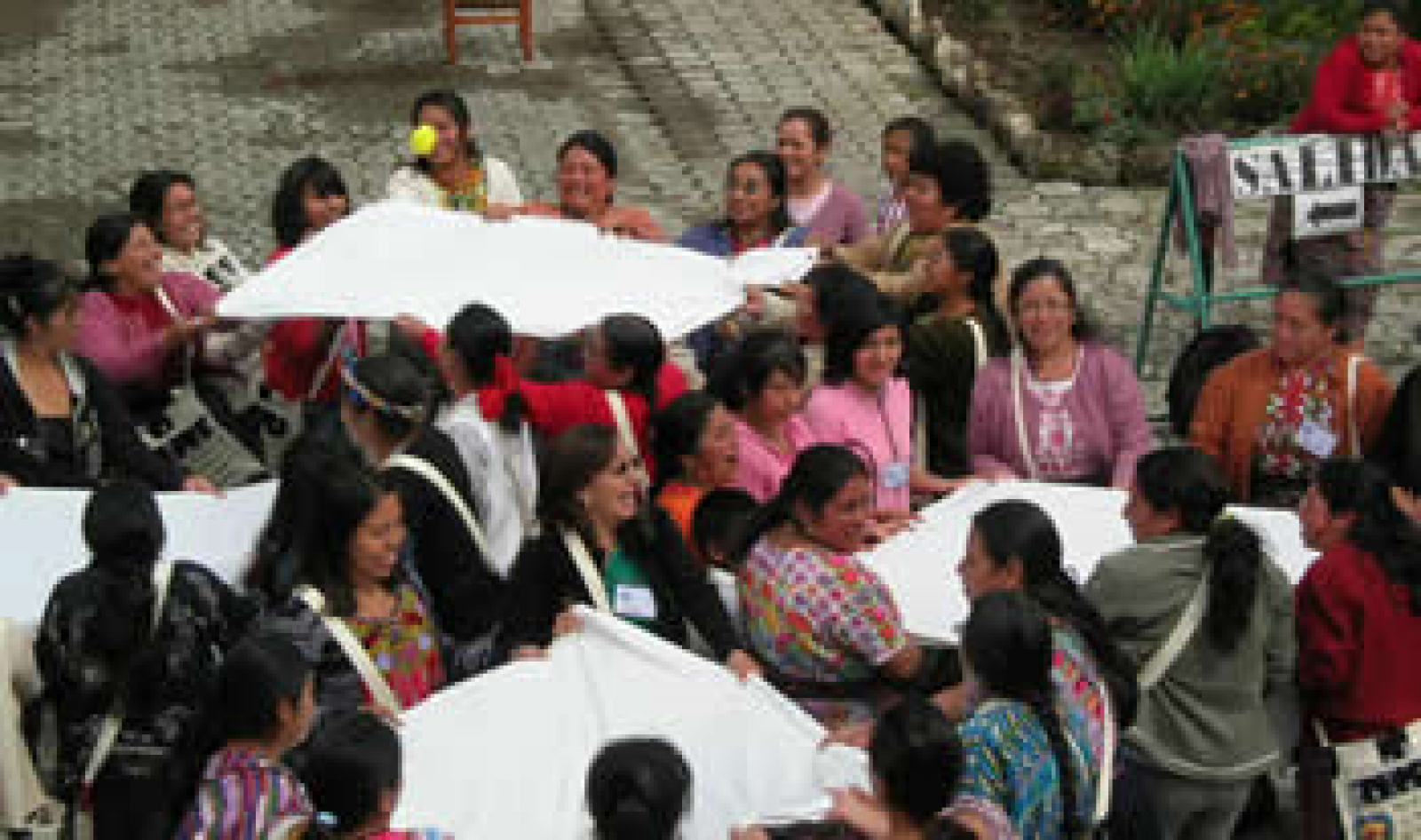
SHARE
Mayan women in Guatemala, who are estimated to be 20 percent of the population, are substantially underrepresented in Guatemalan politics. Despite 1996 UN-sponsored peace accords that called for increasing political involvement of the indigenous population, indigenous women were rarely included on candidate lists in the most recent election in 2007, and only two of the 158 deputies in Congress and one of 333 mayors across the country are Mayan women.
In addition, a 2007 NDI-supported study of the indigenous population's participation in politics showed that 50 percent of indigenous women did not plan to vote in that year's election, a significantly higher rate than other Guatemalans.
To address this pattern of exclusion and marginalization, NDI has partnered with the Political Association of Mayan Women (Asociación Política de Mujeres Maya, MOLOJ) to organize an indigenous women's political leadership academy. Its goal is to provide the women with the skills needed to participate in political life in Guatemala at all levels, including obtaining leadership roles in political parties, participating in local advisory councils and promoting women's issues in civil society organizations.
From November 2008 through August 2009, the Indigenous Women's Political Academy conducted seven trainings for 111 women from multiple political parties and civil society organizations. Topics included leadership skills, political culture, democracy, political parties and forms of organization that are unique to indigenous communities. The trainings took place in Quetzaltenango, which is a predominantly indigenous department outside the capital city.
Each training included discussions of the concepts being presented as well as group activities to reinforce new skills. The participants discussed why women and indigenous people are excluded from political parties and the political system, and methods for becoming more involved in politics. Group exercises identified different organizational and leadership styles and methods for effective democratic leadership.
NDI and partner organizations also hosted panel discussions with indigenous women leaders that provided academy participants with practical advice and concrete examples of how women can have political careers and actively participate in their communities.
Participants gained a greater understanding of the political process in Guatemala, as well as how to analyze and understand political events. "This process helped me gain a better understanding of the political reality and how to be a strong leader. I now have a base from which to work in my community and with people in my party. These trainings opened my eyes and gave me new ideas and strategies," wrote one of the participants when evaluating the impact of the academy.
The women plan to use their new skills to become more involved in their communities and to pass on these skills to other women. NDI is exploring opportunities for academy participants to undertake internships with national and local organizations to put their skills into practice as they advocate for greater inclusion of indigenous women in Guatemala's political arena.
Looking forward, NDI hopes to inspire the creation of additional academies in Guatemala by publishing the training materials as a series of guides. Additionally, NDI plans to hold "train the trainers" sessions in the next year for academy alumnae to help them teach their new skills to other women in their parties, civic groups and communities.
Pictured above: Participants take part in a participatory exercise about community organization during the session on Forms of Indigenous Organization.
Published November 16, 2009



